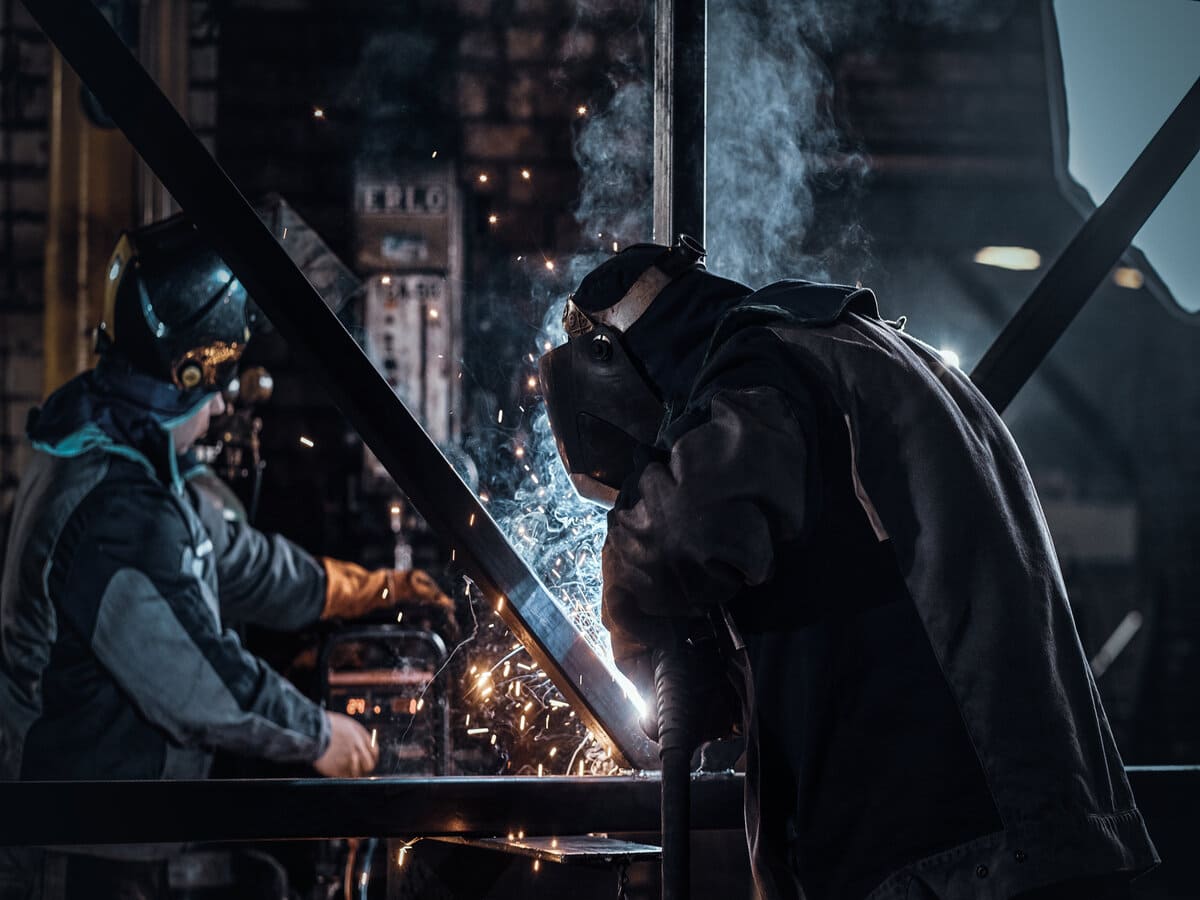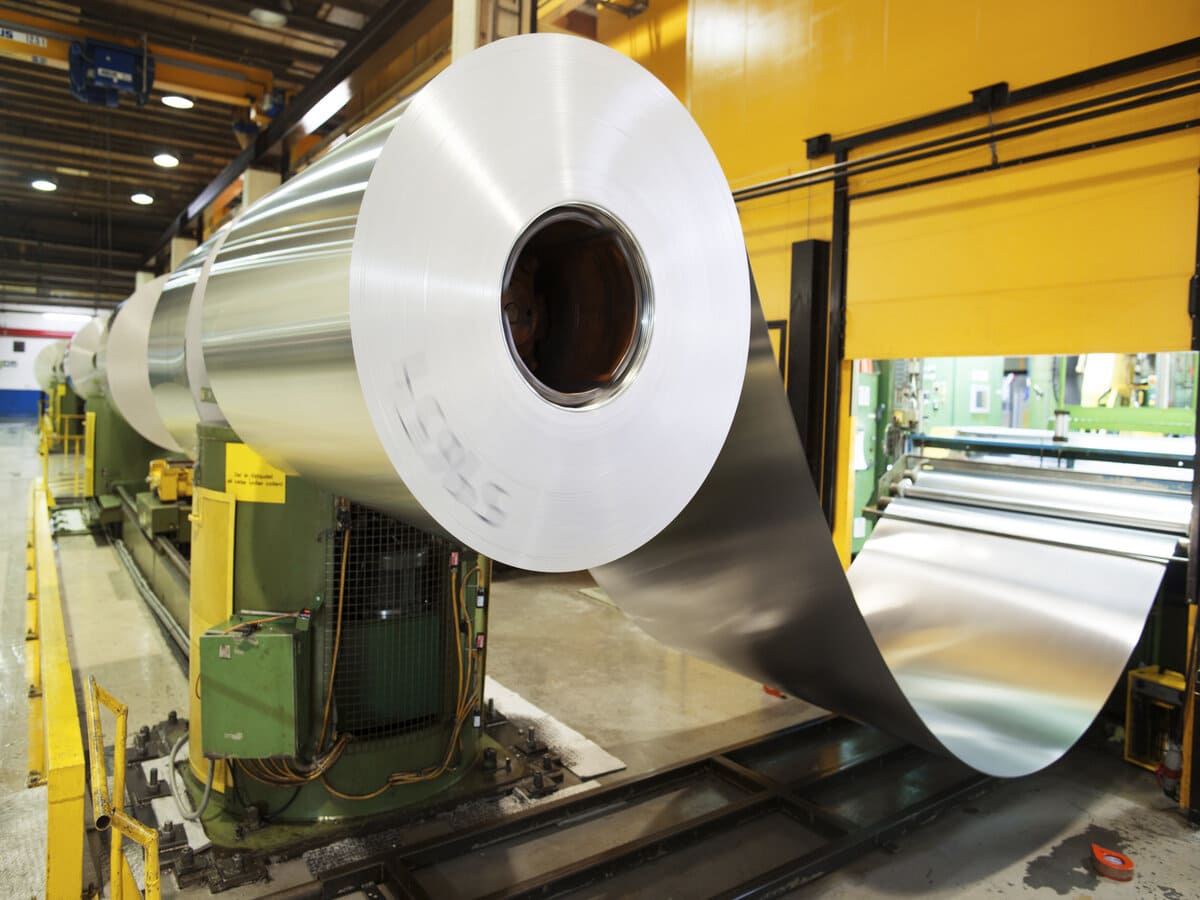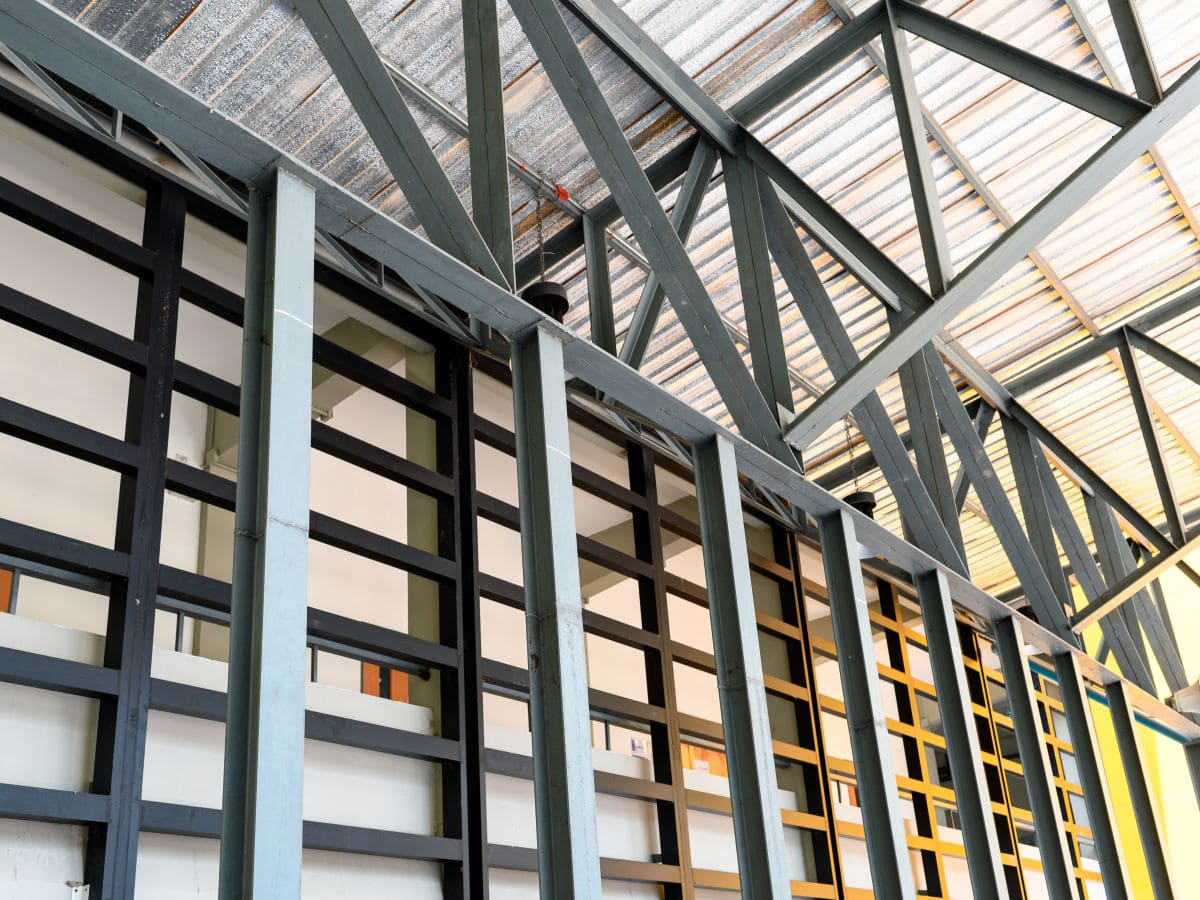In today’s fast-paced and cost-sensitive business landscape, the importance of cost-effectiveness cannot be overstated. It is the driving force behind numerous decisions that businesses make, from procurement to production and beyond. Concerning experienced metal fabricators, a field where precision, quality, and efficiency are paramount, cost-effectiveness takes on an even greater significance. Companies must navigate the delicate balance between achieving high-quality metal products and managing their budgets effectively
Businesses can make decisions benefiting their bottom line by understanding the intricacies of metal fabrication and the potential pitfalls of working with inexperienced fabricators. Experienced metal fabricators bring a wealth of knowledge, skills, and technological expertise to the table, resulting in streamlined processes, reduced turnaround times, and, ultimately, significant cost savings. Whether it’s through precision machining, innovative technologies, or sustainable practices, the collaboration between businesses and seasoned fabricators can reshape the cost landscape in the world of metal fabrication.
The Role of Metal Fabrication in Various Industries
Metal fabrication is a linchpin in the industrial world. It is the backbone of countless industries due to its pivotal role in transforming raw metal materials into functional products and components. Its significance extends far and wide, impacting sectors ranging from manufacturing to construction and even aerospace. At its core, metal fabrication enables the creation of essential items that underpin modern life, making it an indispensable part of industrial ecosystems.
Numerous industries rely heavily on metal fabrication to meet their production needs. For instance, in the automotive sector, metal fabrication is instrumental in crafting components like chassis, engine parts, and body panels, ensuring the durability and safety of vehicles. In construction, metal fabrication is critical for shaping structural elements such as steel beams, frames, and support structures, providing the stability needed for buildings and infrastructure projects. Additionally, in the aerospace industry, precision metal fabrication is essential for manufacturing aircraft components, ensuring the safety and efficiency of air travel.
The impact of experienced metal fabricators on product performance cannot be overstated. In industries like healthcare, where the production of medical devices demands precision and reliability, the quality of metal fabrication directly affects the effectiveness and safety of these devices. Likewise, metal fabrication is vital in creating efficient and durable components for power generation and transmission systems in the energy sector. The structural integrity, durability, and performance of these components rely heavily on the craftsmanship and precision of metal fabrication, making it a linchpin in the pursuit of excellence across diverse industries.

The Cost of Inexperienced Metal Fabrication
Working with inexperienced metal fabricators can be risky, as it often leads to many pitfalls that can have significant financial consequences for businesses. One of the most common issues when partnering with inexperienced fabricators is the lack of expertise and precision. Inexperienced fabricators may not possess the knowledge or skills required to meet the exacting standards of various industries, leading to subpar quality and performance issues in the final products. This can result in expensive product recalls, rework, and even legal liabilities, substantially increasing production costs.
Moreover, delays in project timelines are another glaring problem when inexperienced metal fabricators are involved. These delays can stem from errors, mismanagement, or an inadequate understanding of the fabrication process. Delays can be incredibly costly, disrupting supply chains, halting production schedules, and leading to lost revenue opportunities. Furthermore, inexperienced fabricators may lack efficiency in their processes, resulting in wasted materials and increased production times, directly translating into higher business costs.
One of the often-overlooked aspects of inexperienced metal fabrication is its hidden costs. These hidden costs can manifest in several ways, such as higher maintenance and repair expenses due to using subpar materials or the need for frequent replacements of faulty components. Additionally, subpar metal fabrication can decrease product lifespan, meaning that products wear out or break down prematurely, necessitating costly replacements or repairs. All these hidden costs can accumulate over time, eroding profitability and hindering a company’s ability to compete effectively in the market. In conclusion, the financial toll of inexperienced metal fabrication is not limited to the visible expenses. Still, it includes the less apparent yet substantial hidden costs that can detrimentally affect a business’s bottom line.
Benefits of Experienced Metal Fabricators
Experienced metal fabricators bring a wealth of expertise to the table, making them invaluable partners for businesses seeking cost-effective, high-quality solutions. Firstly, their in-depth knowledge of metal properties, fabrication techniques, and industry standards ensures that every project is approached with precision and mastery. This expertise lets them advise on material selection, design optimization, and production methods, ultimately leading to superior outcomes.
One of the key advantages of collaborating with experienced metal fabricators lies in the efficiency of their processes. These professionals have honed their workflows and techniques over years of practice, resulting in streamlined operations that minimize waste and optimize resource utilization. Consequently, businesses benefit from shorter project timelines, reduced lead times, and lower production costs. This efficiency can be a game-changer in a competitive market where time-to-market is often a critical factor.
Precision and quality assurance are at the heart of experienced metal fabrication. These fabricators employ stringent quality control measures and state-of-the-art technology to ensure that each component meets or exceeds industry standards. The importance of precision cannot be overstated, as even slight deviations can lead to product failure or safety concerns. By upholding rigorous quality standards, experienced fabricators enhance the reliability and performance of products and help businesses avoid costly recalls, warranty claims, and reputation damage. Their commitment to precision and quality assurance translates into long-term cost savings and enhanced brand value for their clients.

Technology and Innovation in Metal Fabrication
Advanced technology plays a pivotal role in driving cost-effectiveness in metal fabrication. Integrating cutting-edge machinery and processes has revolutionized the industry, increasing efficiency and reducing costs. For instance, CNC (Computer Numerical Control) machining has brought about precision and automation, allowing for the production of complex components with minimal human error. This enhances the quality of the fabricated products and significantly reduces labor costs and material waste.
In addition to CNC machining, 3D printing has emerged as a game-changer in metal fabrication. This innovative technology enables the creation of intricate metal parts with a high degree of customization. 3D printing minimizes material wastage, as it only uses the necessary amount of metal, and can even reduce the need for assembling multiple components, further streamlining production. Moreover, it facilitates rapid prototyping, accelerating product development cycles and saving costs associated with traditional tooling.
Collaboration and Customization
Collaboration between businesses and experienced fabricators is a cornerstone of cost-effectiveness in metal fabrication. By working closely together, businesses can tap into the fabricator’s expertise to design and optimize components that meet their specific needs. This collaborative approach ensures that the fabricated parts are tailored to the exact requirements, eliminating unnecessary features or materials that can inflate costs.
Customization, driven by collaboration, leads to optimized cost structures in several ways. Firstly, it enables businesses to choose materials that balance cost and performance, avoiding over-specification. Secondly, customized designs often produce more efficient production processes, reducing labor and time expenditures. Thirdly, by catering to the business’s unique needs, customization can eliminate the need for expensive modifications or adaptations post-fabrication. Collaboration and customization empower businesses to achieve cost-effectiveness by tailoring metal fabrication solutions to their specific objectives and budget constraints.

Risk Mitigation and Long-term Savings
Experienced fabricators excel in risk mitigation, a crucial aspect of successful metal fabrication projects. Their expertise and meticulous planning help identify potential risks early in the project lifecycle. By addressing these risks proactively, they prevent costly setbacks and delays. Moreover, their commitment to quality control ensures that fabricated components meet or exceed industry standards, reducing the risk of product failure, recalls, and warranty claims.
Beyond immediate project considerations, experienced fabricators also contribute to long-term cost savings. High-quality metal fabrication results in durable and reliable components that require minimal maintenance and repair over their lifecycle. This reduces operational costs, fewer replacements, and extended product lifespans. Additionally, quality fabrication enhances a company’s reputation for reliability and excellence, attracting more customers and bolstering its position in the market. The long-term financial benefits of partnering with experienced fabricators extend far beyond the initial project, making it a sound investment for businesses.
Sustainability and Environmental Considerations
Efficient metal fabrication practices benefit businesses financially and have positive environmental impacts. Reducing material waste, a hallmark of efficient fabrication, directly contributes to sustainability by conserving valuable resources and minimizing landfill waste. Additionally, optimizing production processes and using advanced technologies can lead to energy savings and reduced carbon emissions.
Furthermore, sustainability practices in metal fabrication can result in cost savings over time. Energy-efficient processes lower operational costs, and the responsible use of resources, such as recycling and reusing materials, reduces procurement expenses. Businesses prioritizing sustainability also enjoy reputational benefits, attracting environmentally-conscious customers and partners. In conclusion, embracing sustainability in metal fabrication aligns with responsible environmental stewardship and offers tangible cost-saving advantages that position businesses for long-term success.
Forging a Profitable Future: The Metal Fabrication Equation
In the intricate tapestry of modern industry, the choice of a metal fabricator is a game-changer, influencing the financial realm of businesses in ways both seen and unseen. As we’ve delved into the world of metal fabrication, it becomes abundantly clear that the experienced hand of a seasoned fabricator can be the thread that stitches together cost-effectiveness, precision, and innovation. From the automotive sector to aerospace and CNC machining to 3D printing, the role of metal fabrication in various industries is undeniable. Yet, the path to prosperity is not merely about the end product but also the journey, where pitfalls of inexperienced fabrication can incur significant costs. Experienced fabricators, on the other hand, bring expertise, efficiency, and quality assurance to the forefront. They are not just artisans but strategic partners, mitigating risks and paving the way for long-term savings. Collaboration and customization, driven by their expertise, offer tailored solutions that optimize cost structures. Moreover, sustainability practices in metal fabrication benefit the environment and lead to financial gains over time. In this intricate dance of metal, precision, and innovation, the choice is clear: working with experienced metal fabricators isn’t just about the present—it’s about forging a profitable future.

Frequently Asked Questions
How Do Inexperienced Fabricators Impact Project Costs?
Inexperienced fabricators can increase costs due to errors, rework, delays, and subpar quality. These issues can result in wasted materials, longer production times, and potential legal liabilities.
What Benefits Do Experienced Metal Fabricators Bring to Projects?
Experienced fabricators offer expertise, efficiency, and quality assurance. They reduce project risks, improve precision, and help businesses achieve long-term cost savings through optimized processes and superior product quality.
What Advanced Technologies are Used in Metal Fabrication?
Advanced technologies in metal fabrication include CNC machining, 3D printing, and automation. These technologies enhance precision, reduce labor costs, and minimize material waste.
How Can Customization Lead to Cost Savings?
Customization allows businesses to tailor metal fabrication to their needs, optimizing cost structures by avoiding over-specification and streamlining production processes.
What is the Typical Lead Time for Metal Fabrication Projects?
A8: Lead times can vary depending on project complexity and the fabricator’s capacity. Collaborating with experienced fabricators often results in shorter lead times due to their efficient processes.





